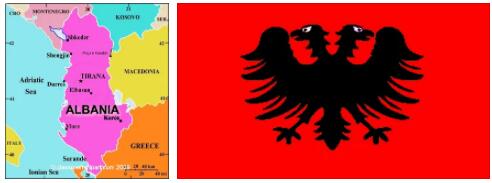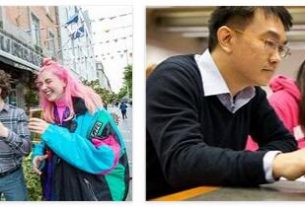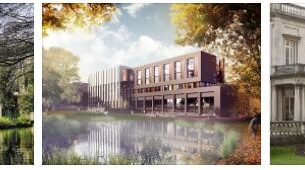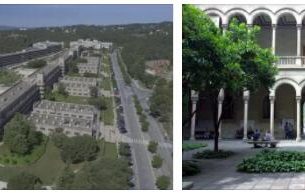Shopping
Overview
Albania has ancient handicraft traditions in weaving carpets (called qilim, also known as kilim, from table runners to large formats such as tapestries) and fabrics, filigree work in silver and copper, woodcarving and ceramics, embroidery and sewing. Most handicraft shops and glass factories have stopped working. At all tourist locations, in front of the hotels and excursion bars, artisans or children offer handicrafts (from musical instruments to carvings to crocheted borders). Utility ceramics are available on every market. The best place to buy handicrafts is Kruja, about 1 hour drive from Tirana. In the local bazaar, felt makers, Carpet weavers and antique dealers sell their wares. Many shops in Kruja offer souvenirs such as Albanian flags, copper plates and ashtrays in the shape of a bunker. There are a few more souvenir shops in Tirana, a handicraft cooperative in Gjirokastra and a souvenir stall at Butrint. Bargaining for an acceptable price is not taken amiss by tourists either, although their ignorance is often taken advantage of. Street vendors also offer antiques (see Duty Free). Beware of tempting offers and business proposals. Opening hours of the shops: The shops have i. Open generally Mon-Sat 08.00-12.00 and 15.00-19.00. Many shops are also open on Sundays. Bazaars, roadside stalls and hawkers in cities all have their own selling times.
- Topmbadirectory: Offers information about politics, geography, and known people in Albania.
Nightlife
Introduction
A special pleasure is the evening stroll on the main boulevards of the cities. In some places, the streets are closed to traffic for a few hours especially for this occasion. In Korça, the bazaar, where local handicrafts are offered, will also be open in the evenings in the future. Albania has a high standard in classical music. The cultural offer includes theatre, opera and concerts. The most important performance venues include the Migjeni Theater in the northern Albanian city of Shkodra, the Andon Zako Çajupi Theater and the Vangjush Mio Cultural Center in south-eastern Korça, and the Palace of Culture in the capital, Tirana. There are restaurants and bars in all major cities, but the capital Tirana has the most to offer for night owls. The former residential area of Ish-Blloku, which was a gated housing estate for high-ranking politicians such as Enver Hoxha before the democratic transition, is now a popular nightlife area with numerous cafes, trendy bars and chic restaurants. In Tirana there are also some nightclubs that are open until late at night. Sometimes the music is played live, especially on the weekends. Discos are less common outside of Tirana. In the coastal towns, music and dance events take place in the larger hotels during the summer tourist season. The local cinema company Millenium maintains film screening houses in all major towns. Usually Hollywood films are shown with Albanian subtitles.
Culinary
Overview
Private restaurants enliven the general gastronomic offer. In Tirana, the number of international restaurants and pubs is increasing, especially in the former villa district of Ish-Blloku. In addition to the »Restaurant Berlin«, there are a few Italian restaurants, two French and one Chinese. Mostly imported food and drinks are offered here. You should reserve a table and show up on time. Outside the capital, restaurants are rather rare.
Regional specialities
The local cuisine is Balkan cuisine with a Turkish influence and borrowed vocabulary (Byrek, Qofte, Shishqebab), but also with many variants. Vegetables and meat are on the menu, and bread is part of every meal. Well-known specialties are Fërgesë Tirane, a hot stir-fry made from pieces of meat and liver with egg and tomatoes, and Tavë Kosi or Tavë Elbasani, mutton baked in yoghurt. The Koran, a type of salmon trout from Lake Ohrid, is also popular, and the Shkodra carp is also worth trying. Kukurec, stuffed sheep intestines (particularly popular in the south) and baked mutton heads are a tribute to the guest. Tarator, a cold yoghurt and cucumber soup, is refreshing in summer. A special dessert is Oshaf, a fig and sheep’s milk pudding from Gjirokastra. In general, Albania is an Eldorado for friends of sweet cakes, honey-soaked cakes, puddings and ice cream or (especially in the south) candied fruit, Reçel.
Useful information
The usual hotel breakfast, which is usually not included in the room rate and has to be paid for separately from the waiter, is based on the continental breakfast. A rustic local breakfast such as pilaf (rice dish) or paça, a hearty soup made from offal, is not for everyone and is not offered in hotels.
Tip
Tipping is expected in restaurants and for services and is important to the local given the low wages and salaries. It is customary to round up the invoice amount by about 10%.
Regional drinks
Many drinks are imported, from Austrian canned beer and Macedonian wine to imitation cola and aniseed schnapps from Greece. Good local wines have become rare. The connoisseur will particularly enjoy the Raki, a clear pomace schnapps (Raki Rrushi), whereby the privately offered and (legally) self-distilled is of course always the best. Mulberry schnapps (Raki Mani) has always been a rare specialty, which can only be found in the area around Korça as home-made. Some hotels still offer both Albanian brandies, Konjak Skënderbeu and Ekstra from Korça with its special aroma. finely ground, Kafe Turke (Turkish coffee) cooked at will with sugar vies with the Italian Ekspres (espresso) for the favor of the public. Usually only men sit in the coffee shops.
Minimum age for consumption of alcoholic beverages
In Albania, you can drink alcohol from the age of 18.
Accommodation
Hotels
Many newer hotels are privately owned. 5-star hotels are still rare in Albania. The country’s first official 5-star hotel is the Maritim Hotel Plaza Tirana.
Camping
Campsites on the Adriatic coast offer 4-berth caravans in summer. It is not recommended to camp freely.
Other accommodation options
In Tirana, the hostel Homestel Albania is a cheap place to stay.
Culture
Religion
70% Muslim (mainly Sunni), 20% Orthodox and 10% Catholic.
Social Rules of Conduct
They shake hands to greet each other. Traditionally, men touch each other’s heads sideways. Salutation: Mr. and Mrs. with academic titles. Detailed, multiple questions about the well-being of the conversation partner and that of his family members open the conversation and are common in encounters and every telephone call. Knowledge of kanun (traditional customary law) is essential given the revival of ancient customs. It is not customary to bring flowers to domestic gatherings. On the other hand, small presents that are given inconspicuously are gladly accepted. Gifts usually require something in return. In the case of death, a condolence visit is expected from acquaintances. Albanians take off their shoes when entering the house, visitors are usually offered plastic sandals or slippers. “Yes” and “no” are shown in a special way in Albania and one should refrain from spontaneous head gestures. »Yes«: brief sideways shake of the head. “No”: lifting the head, underlined by a click and, if necessary, accompanied by a movement of the index finger. Any attempt to communicate in Albanian is greeted with sympathy. It will i. Generally casual clothing worn. Skirt length and extravagance in women’s fashion are no longer dictated by prudish moral concepts. Shorts for men are acceptable both on the beach and in the city. Public order and security have largely returned to normal. Nevertheless, as a tourist you should be careful. Demonstrative display z. B. expensive jewelry should be avoided. Passports are extremely interesting for thieves, since Albanian citizens can hardly leave their country due to entry restrictions in other countries. You also have to watch out for foreign currency, valuables, cameras, watches and coats — anything that can easily be turned into money. The street vendors on the roadside and in the bazaars clearly demonstrate which consumer goods are involved. You should not let your luggage out of your sight, locked cars are not safes. The risk of being harassed or robbed is particularly high when roaming lonely streets and in remote areas or to tourist attractions away from the general public, especially after dark. Women easily fall victim to intrusiveness. smoking is widespread smoke-free zones in restaurants or bars are hard to find. Smoking is forbidden in public buildings, but it is rarely followed. Long-distance buses, on the other hand, often make smoking stops when driving across the country. It is customary to tip 10 percent in restaurants. Homosexuality is taboo, and public displays of affection between gay couples are greeted with some hostility by local residents.
Climate
Best travel time
The climate varies in different parts of the country.
Coast: Typical Mediterranean climate, particularly pronounced in the western coastal lowlands: mild, humid winters and warm, dry summers.
Mountains: In the mountainous interior of the country. Climate with continental characteristics: hot and dry in summer, sometimes very cold in winter. Main precipitation in winter, at higher altitudes a lot and very long snow.
The best travel time is May/June or mid-September to mid-October.
Country data
Phone prefix
+355
Area (sq km)
28,748
Population
2,877,797 (Source: homosociety)
Population density (per square km)
102.17
Population statistics year
2020
Member of the EU
No
Main emergency number
127



